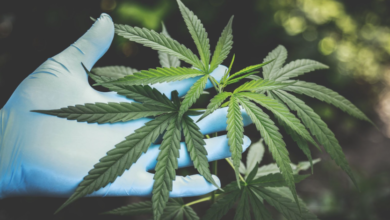How Long Does Cbd Tincture Last in Your System

The duration of CBD tincture effects in an individual’s system is a multifaceted topic, encompassing various factors such as metabolism, dosage, and consumption methods. Typically, users can expect effects to last between 4 to 6 hours; however, nuances in personal biology and usage practices can significantly alter this timeframe. Understanding these influences is crucial for optimizing one’s experience with CBD. As we explore these factors further, the implications for effective dosing and individual response become increasingly evident. What might this mean for your own use of CBD tinctures?
Understanding CBD Tinctures
CBD tinctures are concentrated liquid extracts derived from the cannabis plant, typically combined with a carrier oil, which allows for efficient absorption and dosage management.
The benefits of CBD include potential relief from anxiety, pain, and inflammation.
Tincture administration offers a versatile method for users seeking to harness these advantages, promoting personal autonomy in wellness choices through precise dosing and rapid effects.
Read more: How Long Does Cbd Take to Kick in Oil
Factors Influencing Duration
The duration of effects experienced from CBD tinctures can vary significantly based on several key factors, including dosage, individual metabolism, and the method of consumption.
Higher dosage amounts may lead to prolonged effects, while individual tolerance and metabolism rates can significantly influence how long CBD remains active in the system.
Additionally, different consumption methods—such as sublingual or oral—affect absorption and onset time, impacting overall duration.
Expected Timeframes in the Body
Effects of CBD tinctures typically remain in the body for 4 to 6 hours, though this duration can be influenced by various factors such as individual metabolism and dosage.
Metabolism effects play a crucial role; faster metabolisms may process CBD more swiftly.
Adhering to established dosing guidelines can optimize the duration and effectiveness of CBD tinctures, enhancing user experience and promoting autonomy in consumption choices.
Conclusion
In summary, the duration of CBD tincture effects varies among individuals, influenced by factors such as metabolism, dosage, and method of consumption.
Understanding these variables allows for a more tailored approach to usage.
Just as the ebb and flow of tides are shaped by gravitational forces, so too does the experience of CBD tinctures fluctuate based on personal circumstances and choices.
Recognizing these dynamics can lead to more effective and satisfying outcomes in cannabinoid therapy.




